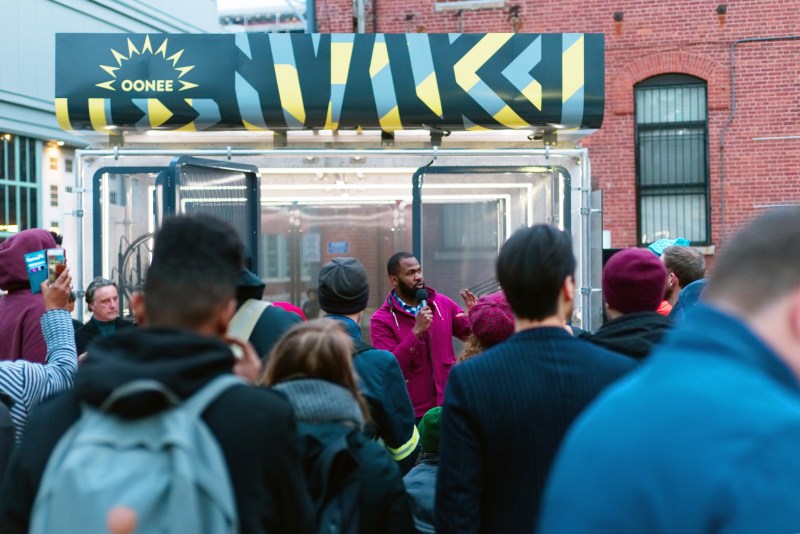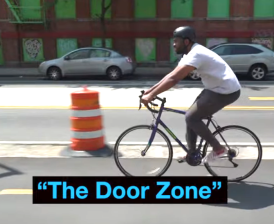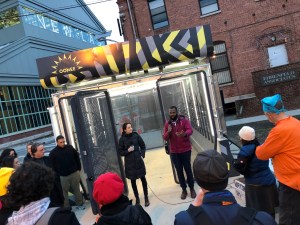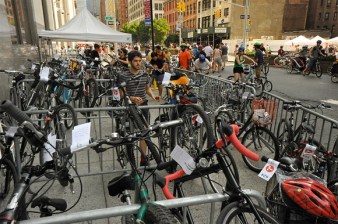SHABAZZ STUART: City Contracts Hold a Key to the Next Black Renaissance


Less than 3 percent of New York City government contracts go to Black- and Brown-owned businesses.
Let that sink in for a moment; the dream of a sought-after city partnership remains but a pipe dream for minority business owners, in a city where a majority of residents identify as either Black or Latino.
It’s not acknowledged as often, but this disparity is just as troubling and systemically racist as those found within criminal justice and education systems, and are also another manifestation of the 400 years of systemic disenfranchisement and discrimination that has typified our nation’s treatment of people of color.
The status quo is profoundly damaging to our city in at least two ways.
First, as we enter a renewed conversation about the meaning of Black lives in America, it’s fundamentally important to acknowledge the massive imbalance that remains in wealth and income. Nationally, the typical White family has a financial net worth that is 10 times greater than the typical Black family. In New York, the average White household generates about double the income as Black and Brown households, and the gap is growing.
In a society where the link between wealth and achievement is intrinsic, this prosperity crevice is not just problematic; it’s paramount.
This is, of course, reflected and perpetuated in the city’s completely inordinate contracting landscape. Minority businesses are mostly left out in the cold and the wealth and opportunity, in a mostly minority city, continues to flow to mostly white people.
Second, but no less important: the erasure of Black and Brown ideas and know-how from civic life. Public-private partnerships are a crucial driver of innovation in the modern city, and they’re vastly devoid of diversity on the private side. For example, consider the many companies that populate the micro-mobility revolution that’s been heralded by livable streets advocates; I can think of none led by a Black person. I can think of none led by a Latino person. Moreover, these companies are also largely devoid of minority representation at the board and executive levels.
Yet these are the companies with which American cities partner.
It is said that a democratic government cannot be effective unless it is proportionally representative. Yet, these firms, which wield such an outsized influence on Black and Brown communities are doing so with mostly White perspectives. In practical terms, this impacts millions of major and minor decisions; everything from the design of a scooter to the interface of an app is derived from the perspective and experiences of the people that lead and staff these businesses.
As a Black entrepreneur in New York, I am unfortunately familiar with the former and perennially frustrated by the latter.
Inspired by the city Department of Transportation’s call for a secure bike parking network, my partner and I created Oonee — and then designed and implemented the city’s first automated secure bike parking hubs. I did this with fidelity to my experiences growing up poor in Brooklyn; the stations would be free to use, with funds generated from advertisers and sponsors. Our company would take the extra step of providing insurance to the bicycles and scooters parked inside because I personally knew the pain of losing a bike to theft and not being able to replace it.
Designing a business model that incorporated these facets was not easy. In fact, it was very hard. But I knew that it was the right thing to do, and that it would make for the best product. I have no doubt that my experiences as a Black man, born and raised in the city, contributed to my perspective and resolve.
By most civic measures, Oonee has been successful. Our small company, which mostly employs people of color, has certainly exceeded the “secure, affordable and attractive” standard outlined by the DOT in 2016.
Cyclists rave about us. Business Improvement Districts write letters to the city asking for more. Community boards, the traditional boogeyman of bike advocates, clamor for expansion. Our last launch event was attended by the Brooklyn Borough President, City Council Speaker and the Council Majority Leader. Both Transportation Alternatives and Bike New York sent representatives to cut the ribbon with us. Our solution works.
Meanwhile, the city, citing a lack of “feasibility,” quietly canceled its own plans for a secure bike parking pilot. Our solution, is here now, and it’s proven to work.
We don’t have competitors. This is primarily true because we take on the full responsibility of financing, design and operation of the stations. We actually return a portion of the revenue to the public.
Yet, while the city has repeatedly flirted with a request for proposals that would allow for an expansion of our system, a deeper relationship with the DOT has thus far eluded us. While the large (and mostly White) e-scooter companies are getting an RFP for citywide deployment, our practical, proven and popular secure bike-parking solution has languished, even though it’s enshrined within the city’s own mobility plan.
Occasionally, along the way, I’ve received some candid, off-the-record advice from high level city insiders. “Get a lobbyist who can make the right calls,” one person told me when the doors were closed.
“Raise more money and deploy 10 more pilot units to prove your point, even if they don’t make any money.” said another.
I appreciated the honesty, but such sentiments exemplify the vicious, systemic cycle that disadvantages smaller minority firms. Black founders, like me, receive about 1 percent of venture capital financing. Minority firms are far less likely to get loans from banks to start or expand businesses. I don’t have the money to hire lobbyists and I definitely don’t have the money to build 10 more units without the specter of revenue.
My family doesn’t have “connections,” and I can’t call my mother up for a loan or an investment so I can hold on indefinitely. If anything, she’s counting on me to take care of her.
All I have is my company’s resume.
In a truly equitable city committed to anti-racism, those with the best ideas and track records must win municipal contracts, not those with the most money and power.
I’m not alone. There are so many competent, tenacious entrepreneurs from communities of color with unique ideas and the work ethic to see them through. All they need is for their city to give them a chance. And that doesn’t mean some vague commitment to leveling the playing field — it will require aggressive and thoughtful, affirmative partnerships that acknowledge that 400 years of wealth theft from Blacks to Whites — from slavery through Jim Crow to redlining and racist banking practices — means that Black and Brown firms need more than just a change; we need help.
Lest we forget the Tale of Two Cities.
Shabazz Stuart is the founder and CEO of Oonee. Follow him on Twitter @shabazzstuart





